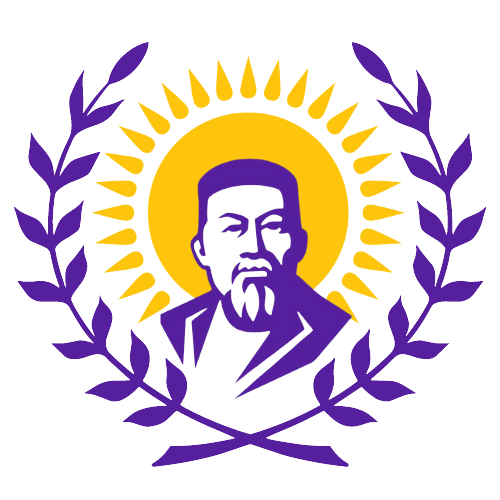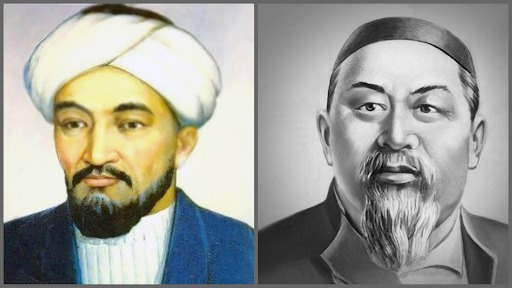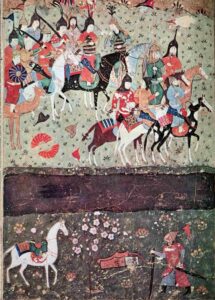Kazakhstan is an emerging global leader with a particular focus on political and economic reform. Many refer to the country as “young.” But the reality is that Kazakhstan has a rich history and tradition of philosophy and poetry that continues to influence today. The theme of national history and the return to the roots of culture is the subject of scientific research and an important element in the formation of a new Kazakh patriotism. As the world will be forever changed after the Covid-19 pandemic, Kazakhstan is poised to resume its place both as a global crossroads and a center of development, learning, and modernization.

Abai Kunanbayev, a great scientist-encyclopedist, and Al-Farabi, a poet, translator, composer, philosopher, and thinker, are the foundation of this history and tradition. The year 2020 marks the 1150th anniversary of Al-Farabi’s birth and the 175th of Abai Kunanbayev’s. Their works embody eternity, wisdom, love and faithfulness. Studies of recent years have revealed the philosophical quest of Al-Farabi and Abai and defined their role in the spiritual formation of our nation. Their works continue to attract the attention of both historians and researchers of Kazakh literature.
Al-Farabi and Abai lived and created their works in different centuries. And yet their works are united by the continuity of universal values, humanism, and the reformist spirit of poetry. The deep philosophical treatises and poetic works of Al-Farabi and Abai Kunanbayev played a huge role in the writing of the history of Oriental civilization. In the twenty first century they represented the great heritage of culture of the Kazakh people and the guidelines for their spiritual life. Their work remains relevant to preserving and advancing the cultural heritage of the Kazakh people.
Abu Nasir Muhammed ibn Muhammed Farabi is one of the greatest thinkers of the early Middle Ages. He was a multifaceted scholar-encyclopedist and one of the founders of Eastern rationalism. For this reason, he was awarded the honorary title of “second teacher” after the “first teacher”, Aristotle.
Al-Farabi was born in the town of Farab on the Syrdarya, in 870, in the family of one of the Turkic tribes, which later became part of the ethnic composition of the Kazakh people. Farab later became known as Otrar, the ruins of which are now in South Kazakhstan region. Otrar was the largest economic and cultural center of southern Kazakhstan. There was a library in Otrar and legend says that it was the second largest in terms of books after the famous Library of Alexandria.
The name of Abu Nasr Al-Farabi has been firmly inscribed in the history of world science and culture. He left behind a rich scientific heritage spanning a wide variety of branches of knowledge. He wrote about 160 treatises on philosophy, ethics, aesthetics, logic, linguistics, literature, music, mathematics, physics, astronomy, and other sciences. Al-Farabi’s was able to cover several scientific directions at once for study and development. He was versed in many of the sciences known during the Middle Ages and succeeded in all of them ranging from music to astronomy. His activity began with the study of the works of the great Greek sages. By commenting on them, he tried to convey their thoughts in simple language to a wide range of people.
Thanks to Al-Farabi, a new direction in the sciences and arts was established. He paid particular attention to such aspects of life as happiness, morality, war and public policy. His works included “A Treatise on Achieving Happiness”, “Ways of Happiness”, “A Treatise on the views of the inhabitants of a virtuous city”; “Civil Policy”, “A Treatise on the Study of Society”, “On Virtuous Morals”. All of them touch upon important topics during the cruel Middle Ages including giving love to one’s neighbor and the natural tendency of people to happiness. His “Treatise on War and Peaceful Life”, in which he writes about the immorality of war and the importance of peaceful relations, is still relevant today for all countries seeking mutual cooperation and the prevention of conflicts.
In his 80 years of life, Al-Farabi left a great legacy that was in many ways ahead of its time and has not ceased to be relevant today. He showed exceptional independence in his thinking and consistently defended his beliefs. The same can be said of the teachings of Abai. His work is closely associated with the spiritual rebirth of the people of Kazakhstan and the wisdom of his works is in tune with modern times. Abai Kunanbaev was born in 1845 in the Genghis Mountains. His real name was Ibrahim, but he became known under the name Abai.
Abai’s world view was formed thanks to oriental scholars and poets, as well as Russian classics. Abai studied with outstanding poets and thinkers of the East – Fizuli, Shamsi, Saihali, Navoi, Saadi, Firdousi, Al-Farabi and others. He translated works by famous Russian writers such as M. Lermontov, A.Pushkin and many others.
Abai’s work was dedicated to the life of his native people. He contributed to the spread of Russian and European culture among Kazakhs. He created about 170 poems and made 56 translations, several poems, and a volume of prose “Words of edification”. All facets of the Kazakh soul have found their embodiment in it: its subtle lyricism, its doubts and desperate searches, its bitter sarcasm and all-conquering faith in the creative potential of its people.
The ideals to which Abai aspired are not limited to the national framework – they have a universal appeal. They include true humanism, close attention to the care and needs of a man with a “sensitive with heart and soul”, ruthless truthfulness, an open outlook on the world, spiritual maximalism, rejection of indifference, spiritual laziness, greed, intrigue, thoughtlessness, sluggishness and ignorance.
Like al-Farabi, Abai believed that a man can be happy only when his aspiration and efforts are understood and shared by others. It is no coincidence that they say, “Friendship calls for friendship”. Therefore, he tirelessly worked for national unity and integrity, calling for understanding, peace and harmony. For a people to thrive, they must live in peace and trust with their neighbors. That is one of the main historical factors that determine the fate of a people, especially today.
Abai’s work is becoming extraordinarily relevant now given the formation and development of market relations in our country. Kazakhstan is working hard to bring its economy to the international arena, confirming Abai’s words that if trade is not developed only within one city or country, his homeland can improve much more quickly.
The greatness and phenomenality of Abai’s genius was expressed by the fact that in the era of colonial oppression and humiliation, he managed – in spite of multiple difficulties – to raise the firmness of the national spirit to an unprecedented height. He introduced to the minds of his tribesmen tenacity and boldness instead of cowardice, purposefulness instead of confusion, striving for knowledge instead of ignorance humility instead of misery. He was a figure who genuinely cared for his people. Abai was one of the first Kazakhs to speak of reaching a new level. Today we want to follow his example and talk about the culture of our country to the world.
In the works of Al-Farabi and Abai, these two great sons of the Kazakh land, we clearly see a common line. Even though Al-Farabi Abai Kunanbayev lived in different centuries, their ideals and spiritual values were very similar. The thoughts of Al-Farabi and Abai are the great heritage not only of the Kazakh people, but of the entire world culture.






